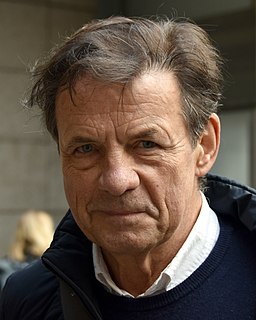A Quote by George Bernard Shaw
I have never admitted the right of an elderly author to alter the work of a young author, even when the young author happens to be his former self.
Related Quotes
Because every book of art, be it a poem or a cupola, is understandably a self-portrait of its author, we won't strain ourselves too hard trying to distinguish between the author's persona and the poem's lyrical hero. As a rule, such distinctions are quite meaningless, if only because a lyrical hero is invariably an author's self-projection.







































